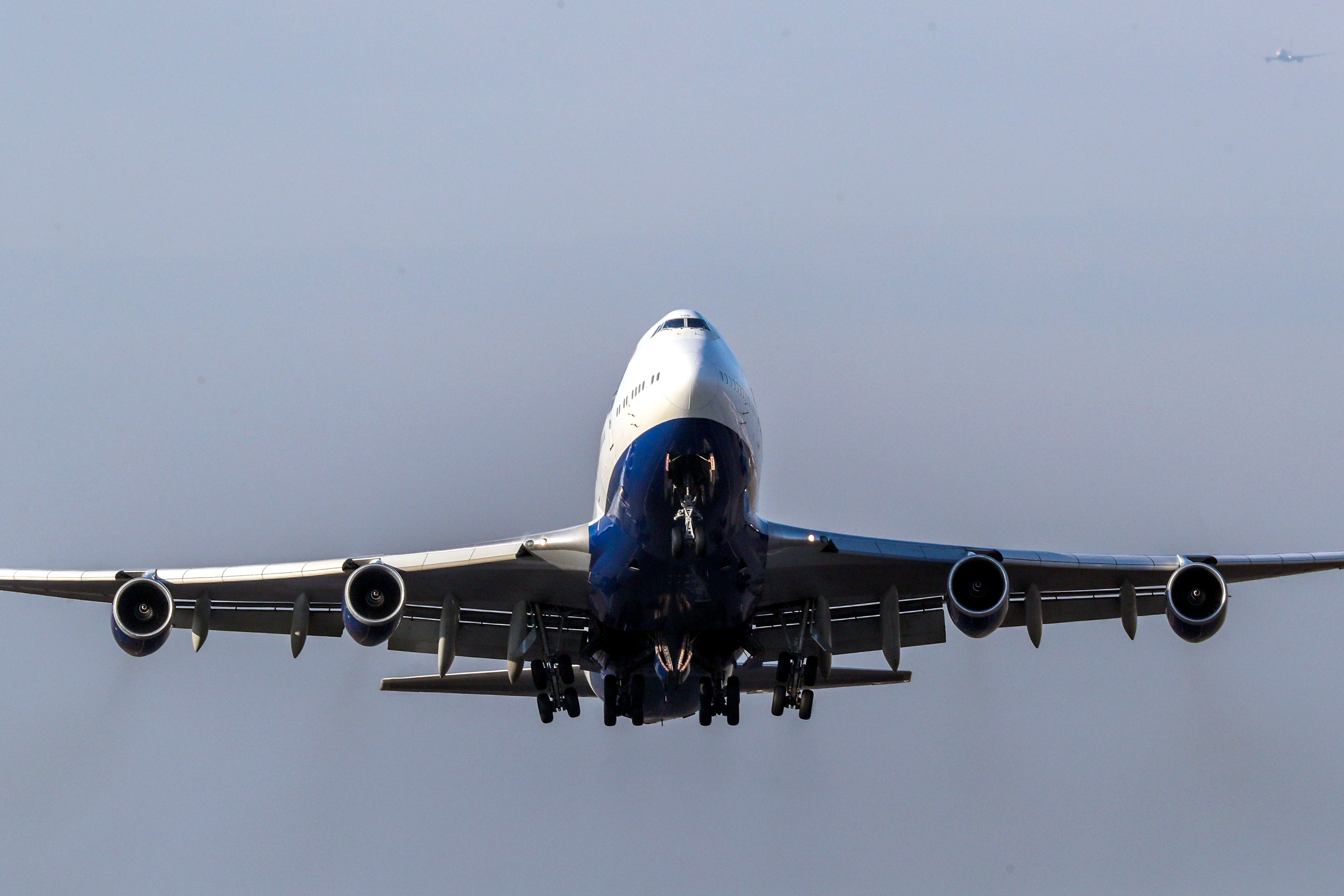Lower-carbon jet fuel mandate comes into force
Sustainable aviation fuel must make up at least 2% of all jet fuel used in flights taking off from UK airports in 2025.

Your support helps us to tell the story
From reproductive rights to climate change to Big Tech, The Independent is on the ground when the story is developing. Whether it's investigating the financials of Elon Musk's pro-Trump PAC or producing our latest documentary, 'The A Word', which shines a light on the American women fighting for reproductive rights, we know how important it is to parse out the facts from the messaging.
At such a critical moment in US history, we need reporters on the ground. Your donation allows us to keep sending journalists to speak to both sides of the story.
The Independent is trusted by Americans across the entire political spectrum. And unlike many other quality news outlets, we choose not to lock Americans out of our reporting and analysis with paywalls. We believe quality journalism should be available to everyone, paid for by those who can afford it.
Your support makes all the difference.Flights from UK airports must use a minimum amount of lower-carbon jet fuel from Wednesday, with the introduction of the sustainable aviation fuel (Saf) mandate.
By law, Saf must make up at least 2% of all jet fuel used in flights in 2025.
The percentage will rise annually, reaching 10% in 2030 and 22% in 2040.
Aviation will be a greener, more sustainable form of travel
The Department for Transport described the requirement – which applies to all aviation fuel suppliers – as “ambitious but achievable”.
Where suppliers cannot directly provide the required amount of Saf, they can purchase certificates from other companies which have provided more than needed.
Alternatively, they can pay the Government £4.70 per litre provided under the required level.
Non-compliance risks civil penalties being imposed.
Saf is seen as vital to reduce the aviation industry’s carbon emissions.
The fuel is made from sources such as agricultural waste and used cooking oil, meaning its production involves using about 70% less carbon than conventional jet fuel, which is a type of kerosene.
It can be blended with kerosene at up to 50% without the need for aircraft engine modifications.
Saf is currently much more expensive to produce than conventional jet fuel, but the price disparity is expected to narrow as Saf production increases.
UK airlines support the Saf mandate as both a powerful and practical tool for driving down aviation carbon emissions and a clear signal that the industry is fully committed to a net zero future
Aviation minister Mike Kane said: “From this moment on, aviation will be a greener, more sustainable form of travel and today marks a significant milestone for the UK Saf industry.
“With thousands of jobs supporting the UK Saf industry, and flying becoming more popular than ever, the mandate will help deliver our Plan for Change, helping to grow the economy and giving people the freedom to travel in a more sustainable way.”
Tim Alderslade, chief executive of Airlines UK, which represents UK-registered carriers, said: “UK airlines support the Saf mandate as both a powerful and practical tool for driving down aviation carbon emissions and a clear signal that the industry is fully committed to a net zero future.
“Our priority is ensuring airlines have access to the increasing volumes of Saf required to meet the mandate as global demand soars, at the most competitive price possible for consumers.”
He added that expanding eligible feedstocks and incentives to help cut costs will be “critical” for mandate compliance to be achieved.
The Government has pledged to introduce a revenue certainty mechanism for Saf producers to attract investment in new UK plants.